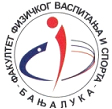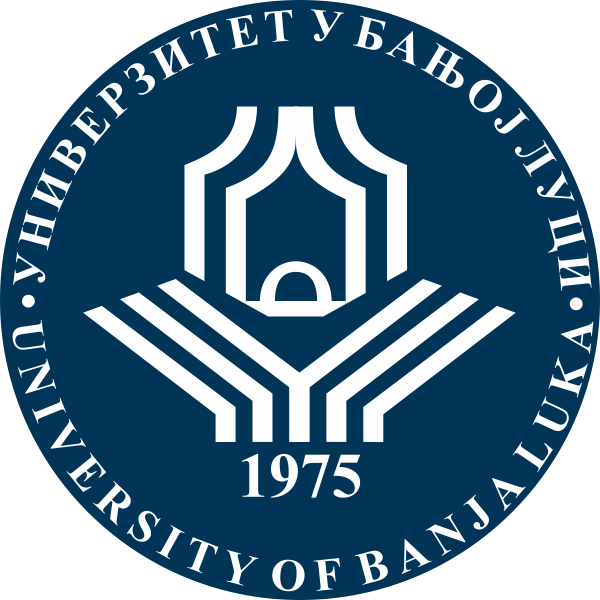SportLogia
Vol. 7, Issue 2, Decembar 2011.
REFLECTION OF THE OLYMPIC PROGRAMME
MANAGEMENT ON THE SPORTS SYSTEM OF SERBIA
Branislav Jevtić1
1Faculty of Sport and Physical Education, University Belgrade, Serbia, The Olympic Committee of Serbia
ORGINAL SCIENTIFIC PAPER
10.5550/sgia.110702.en.131J
COBISS.BH-ID: 2432536
UDC: 005:796.028(497.11)
Summary
FULL TEXT (.pdf) free of charge
As a process of planning, organizing, managing, coordination and control, or management theory, management has its place and importance in the study and development of the national sports system, as well as in managing programmes for participation in a mega sports event such as the Olympic Games (the aim of the study). Analyzing the Olympic programme implemented by the Olympic Committee of Serbia (OCS), their instrumentalized value and impact on the sports system have been determined, knowledge about the process and experiences relevant to the management of Serbian athletes participating in the Olympic Games preparation (the aim of the study) have been acquired. The Olympic programmes and the desire for participation and success at the Games motivate athletes, engage the environment, and determine the strategy, which includes a paradigm for future development based on scientific knowledge, educated and experienced staff.
Key words: the Olympic programmes, Serbian sport system, the Olympic Games, reflection.
References:
Australian Sport Commission. (2004). Planning in sport. (SP 30683). Retrieved from http://www.ausport.gov.au/nso.
Bergsgard, A. N., Houlihan, B., Mangset, P., Nodland, I. S., & Rommetvedt, H. (2007). Sport Policy: A Comparative Analysis of Stability and Change. Singapore: Elsevier.
Blouce, D., & Smith, A. (2010). Sport policy and Development. London: Routledge.
Camy, J., & Robinson, L. (2007). Managing Olympic Sport Organisations. Louzane: OS and Human Kinetics.
De Senci, J. (1990). Sport management circular evaluation and needs assessment. A multifaceted approach. J. of Sport Management, 4, 31–58.
Dikić, N. (2009). Timski doktor karika koja nedostaje. [The team doctor - a missing link]. Conclusions of the III Congress of Sports Science and Sports Medicine of Serbia (pp. 165-166). Belgrade, Serbia: Udruženje sportske medicine Srbije.
Dreyner, J., Pluims, B., & Engebretsen, L. (2009). Prevention of sudden cardiac death in athletes: New data and modern perspective confront challenges in the 21st century. British J. Of Sports Medicine, 43(9), 625–626. doi: http://dx.doi.org/10.1136/bjsm.2009.064592 ![]()
Edwards, A., & Skinner, J. (2009). Qualitative research in Sport Management. Singapore: Elsevier.
Jevtić, B. (2006a). Систем спорта Републике Србије [System of Sport of the Republic of Serbia]. Belgrade, Serbia: Olimijski komitet Srbije.
Jevtić, B. (2006b). Пројекат ОКС “Пекинг 2012” [OSC Project „Beijing 2012“]. Belgrade, Serbia: Olimijski komitet Srbije.
Jevtić, B. (2008). Информациони систем Олимпијског комитета Србије [The information system of the Olympic Committee of Serbia]. Belgrade, Serbia: Olimijski komitet Srbije.
Jevtić, B. (2009a). Пројекат: “Олимпијска Србија” [Project: the Olympic Serbia]. Belgrade, Serbia: Olimijski komitet Srbije.
Jevtić, B. (2009b). Изазови новог олимпијског циклуса [Challenges of the New Olympic cycle]. The first national seminar for trainers RS: The challenges of the new Olympic cycle, Collection of lectures (pp. 7–22). Belgrade, Serbia: Republički zavod za sport.
Jevtić, B. (2010). Sistem sporta, sportski stručnjaci i bolonjski proces [The system of sport, sports experts, and the Bologna process]. In G. Kasum (Ed.), Involvement of the scientific and teaching staff with accredited national faculties of sport within activities of national sports federations and elite clubs in professional staff from the national sport in the system of education and training at accredited educational state institutions (pp. 7–31). Belgrade, Serbia: Fakutet sporta i fizičkog vapsitanja i Ministsrasvo omoladine i sporta.
Jevtić, B. (2011a). Scientific System in Olympic Programmemee Management. International Scientific Conference of Sport Kinetics “Present and Future Research in the Science of Human Movement”, Conference Programmeme and Abstracts (pp. 158–159). Krajowa: Reprezentacja Doktorantów.
Jevtić, B. (2011b). Систем спорта и дечији спорт [The system of sport and sport for children]. In B. Jevtić, J. Radojević, I. Juhas, & R. Ropre (Eds.) “Children’s sport from practice to the academic field (pp. 69–91). Belgrade, Serbia: Fakultet sporta i fizičkog vaspitanja.
Jevtić, B. (2011c). The Path of True Values. ACC Journal, Social Sciences and Economy, 17(2), 82–87.
Jevtić, B. (2011d). Upravljanje programima za učešće na mega sportskom događaju [Management programmes for participation in the mega sports event]. Manandžment, [in press].
Jevtić, B. (2011e). Жена у програмима Олимпијског комитета Србије, искуства претходно и стратегија циклуса 2009-2012 [Women in the programs of the Olympic Committee of Serbia, prior experience and strategy cycle 2009-2012]. Invited lecture, National Conference “Women and Sport”. Fizička kultura. [in the press].
Jevtić, B., & Juhas, I. (2011f). Жена у спорту, истина или Contraversa Symptoma [Women in sport, the truth or Contraversa Symptome]. Polemika, Fizička kultura. [in press].
Kerr, A. G., & Stirling, E. A (2008). Child Protection in Sport: Implications of the Athlete-Centreed Philosophy. Quest, 60, 307–323.
Kobi, E. (1994). Was bedeutet Integration? Analzse eines Begriffs [What does integration mean? Analysis of a concept]. In H. Eberwein (Ed.), Disabled and able-bodied people can learn together,Handbook of Inclusive Education (pp. 71–79). Basel, Switzerland: Weinheim.
Lazarević, Lj., Juhas, I., & Bačanac, Lj. (1996). Competitive State Anxiety and Success in Athletic events. J. Exercise and Society, suppl., 15–193.
Martens, R., Burton, D., Vealey, R., Bump, L., & Smith, D. (1983). Competitive State Anxietz Inventoru – 2. Unpublished manuscript. Univesitz of Ilionis at Urbana, Champaign.
Национална Стратегија развоја спорта у Републици Србији (2009 – 2013) [National strategy of the development of sport in the Republic of Serbia 2009-2013]. Reteived from http://www. mos.gov.rs.
Radojević, J., & Jevtić, B. (2011). Друштво и дечији спорт [Society and children’s sport.]. In B. Jevtic, J. Radojevic, I. Juhas, & R. Ropre (Eds.), “Children’s sport from practice to the academic field” (pp. 31–39). Belgrade, Serbia: Fakultete sporta i fizičkog vapsitanja.
Rokeach, M. (1973). The Nature of Human Values. New York: Free Press.
Rubingh, B. (1996). Sport management in the Netherlands. In IOC (Eds) Sport Management and International Approach. (pp. 85–92). Laussane: Internationla Olympic Committee.
Tasato, C. (2003). To “Pray” and not to “Pray”?:The Function of Play on the maintaince of Culture in the Traditional Christian Life. International Journal of Sport and Health Science, 1(1), 55–61. doi: http://dx.doi.org/10.5432/ijshs.1.48 ![]()




